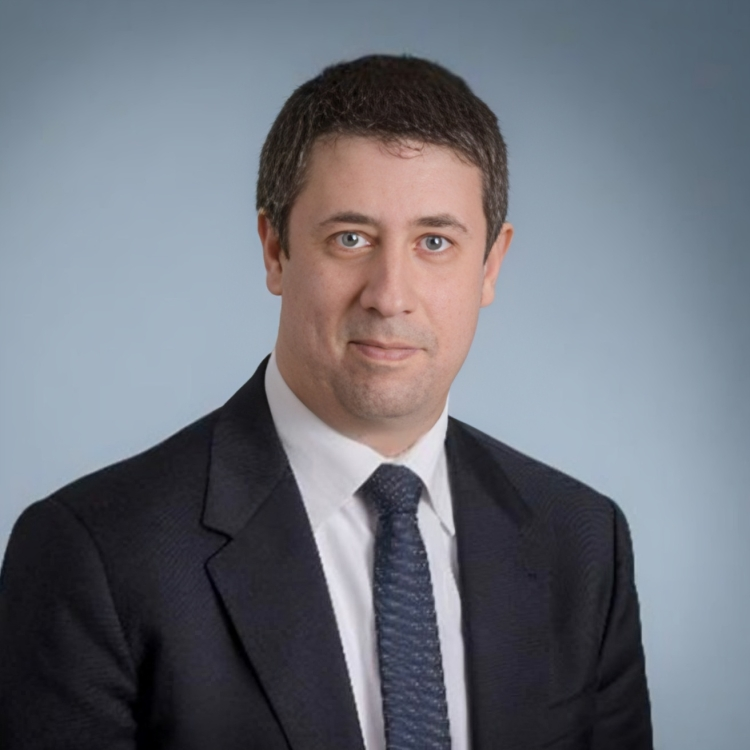Ali Omar
As defence ecosystems become increasingly digital and interconnected, cybersecurity, quantum-safe encryption, and resilient communications have become central pillars of national defence strategies.
On the sidelines of Dubai Airshow 2025, SDArabia conducted an exclusive interview with Mr. Christophe Salomon, Executive Vice-President Secure Communications & Information System, Thales, to discuss how the company is preparing armed forces for the next generation of threats — including AI-powered cyberattacks, quantum computing risks, and battlespace saturation.
Below is the full interview:
1 — Cybersecurity is now the first line of defence. What cutting-edge Thales solutions improve early threat detection and prevent sophisticated cyber intrusions targeting military networks and national infrastructure?
At Thales, we benefit from several strengths. First, we operate extremely close to the environments in which our defence products are deployed — which gives us deep insight into how threats emerge and evolve.
We also work hand-in-hand with national cybersecurity agencies, ensuring we receive early warning on new attack vectors. Within Thales, we maintain strong “red-team” capabilities: highly skilled offensive experts who continuously attempt to penetrate our own systems. Their findings allow us to deliver stronger defensive solutions to customers.
Our portfolio covers the full spectrum: advanced encryption systems, high-grade ciphering, firewalls, cybersecurity sensors, and electronic warfare-related cyber protection tools. We secure everything — from the product level, to detection, to response.
2 — Resilient, secure communications are critical in contested environments. What innovations is Thales introducing to ensure jam-resistant, encrypted, and uninterrupted communications for defence operations?
Modern threats are multi-modal — a missile, for example, may originate from the ground, the air, or even space. Our systems must therefore integrate inputs from radars, sensors, satellites, and surface assets into one coherent C4I system.
We develop and produce this C4I core, which aggregates data from land radars, naval radars, airborne sensors, and even early-warning satellites. It creates a unified operational picture, identifies threats, and recommends the most effective countermeasure or weapon to neutralize them.
Because multiple threats can appear simultaneously, the decision-making process relies on AI-enabled optimization to assign the right effector to the right threat in real time.
On the communications side, we secure both the data itself (COMSEC) through encryption and hardware cryptographic modules, and the transmission path (TRANSEC) through anti-jamming, low-probability-of-intercept techniques, and robust waveforms.
Our radios — VHF, L-Band, SATCOM — are designed to protect both the content and the transmission against interception or disruption.
3 — How is Thales enhancing multi-domain situational awareness through secure navigation, radar integration, sensor fusion, and digital command systems?
We approach situational awareness through full multi-domain integration. Our C4I systems combine data from all sensors — whether on land, sea, air, or space — and fuse them into a single, reliable operational picture.
This includes secure navigation solutions, advanced radar processing, and multi-sensor correlation powered by AI. The objective is simple: give commanders clarity, precision, and confidence to make fast, decisive actions in complex theatres.
4 — Quantum computing and AI are transforming secure communications. How is Thales preparing governments and defence forces for a post-quantum era?
We already know that classical asymmetric encryption algorithms will not survive quantum computing. Data encrypted today could be captured and decrypted in 5–10 years by a future quantum computer — which means it must be protected now.
Thales has been a leading contributor to post-quantum cryptography. Our algorithm Falcon was selected and standardized by NIST as one of the official post-quantum cryptographic algorithms.
Our mission is to help defence operators transition early to quantum-resistant encryption, ensuring long-term protection of sensitive data and communications.
5 — With Thales’s upcoming radar factory producing Ground Master radars, how will cybersecurity be embedded into the production ecosystem to protect the radar supply chain from foreign exploitation or digital threats?
We apply a three-pillar approach:
- Supply Chain Selection:
We audit and select suppliers who meet strict cybersecurity requirements. Cyber maturity is a key selection criterion.
- Continuous Cyber Oversight:
We supervise and support suppliers throughout the production cycle — this is not a “sign and forget” process. We monitor, challenge, and help them upgrade their cyber posture.
- Critical Components Produced in a Secure Industrial Zone:
The most sensitive radar elements are produced entirely within a segregated, cyber-defended network like Tawazun Industrial Park (TIP).
This ensures total control over the most critical radar technologies.
6 — AI-driven analytics are increasingly important in cyber defence. How does Thales use artificial intelligence to enable predictive threat detection, anomaly tracking, and proactive cyber readiness?
Modern information systems generate billions of logs per day, which no human team can analyze manually. AI and big-data processing are essential.
We leverage AI in several ways:
- Log and anomaly analysis: detecting abnormal behavior in real time across massive datasets.
- LLM-based operator assistance: helping operators react to incidents by providing procedures, context, and recommended mitigation steps.
- AI for attack emulation: our red teams use AI tools to simulate intrusion attempts and discover vulnerabilities before adversaries do.
- Rule and policy generation: AI helps define, update, and monitor cybersecurity rules across complex systems.
Simply put, AI is indispensable for managing the complexity and speed of modern cyber defence.
7 — What is Thales’s long-term vision for integrating cybersecurity, AI, quantum technologies, and resilient communications to strengthen national innovation and digital sovereignty in the region?
Our strategy is clear: build sovereign, future-proof defence ecosystems with local partners.
We aim to share our expertise in high-grade cryptography, AI, secure communications, and post-quantum technologies with regional players like UAE — and benefit in return from their strengths and innovation capacity.
We are already exploring new agreements that may be formalized soon, reflecting our commitment to long-term industrial partnerships in the region.
Thales believes that cybersecurity, AI, quantum tech, and resilient communications will be the backbone of national digital sovereignty — and we see the Middle East as a leading region in adopting these future-critical capabilities.
